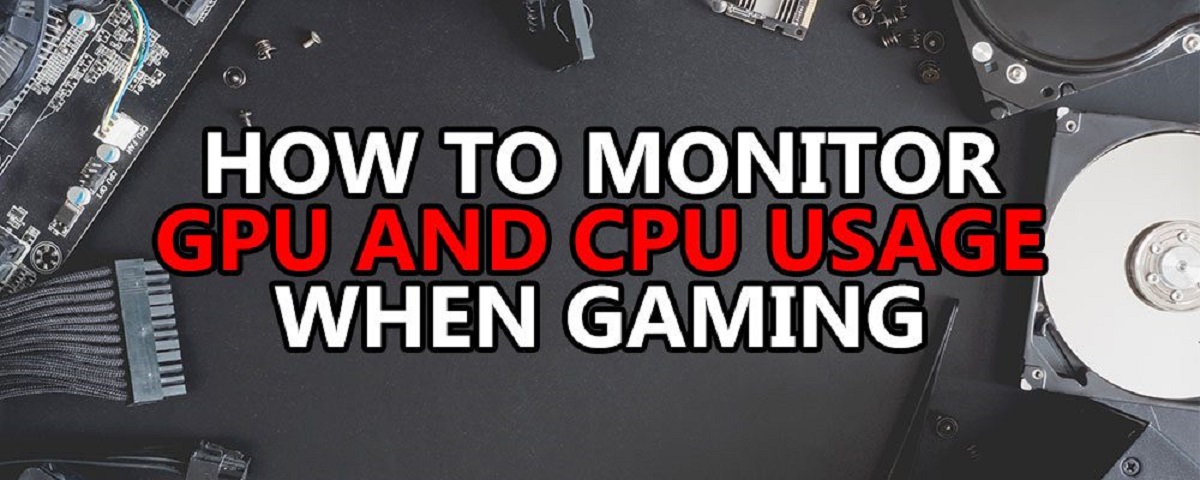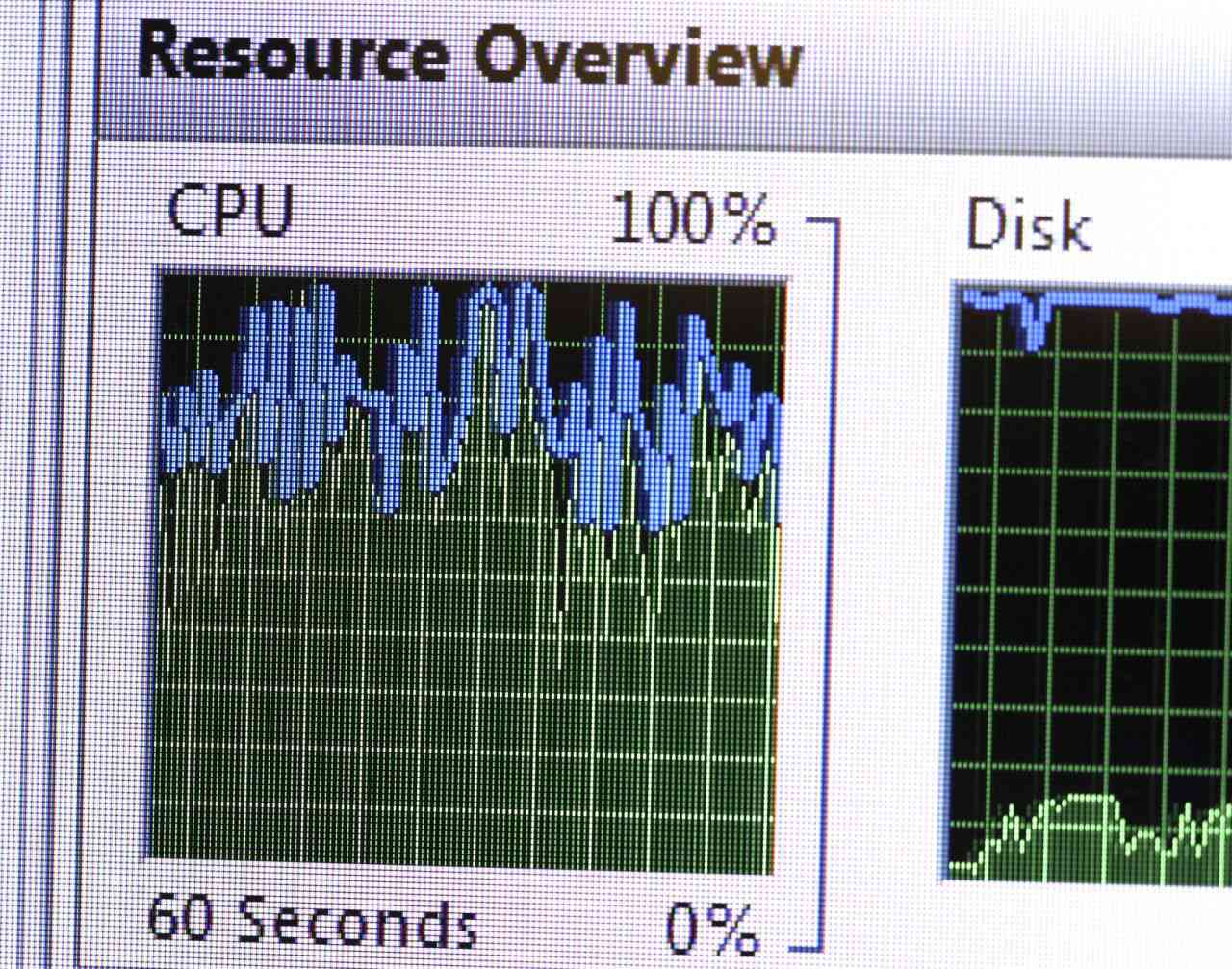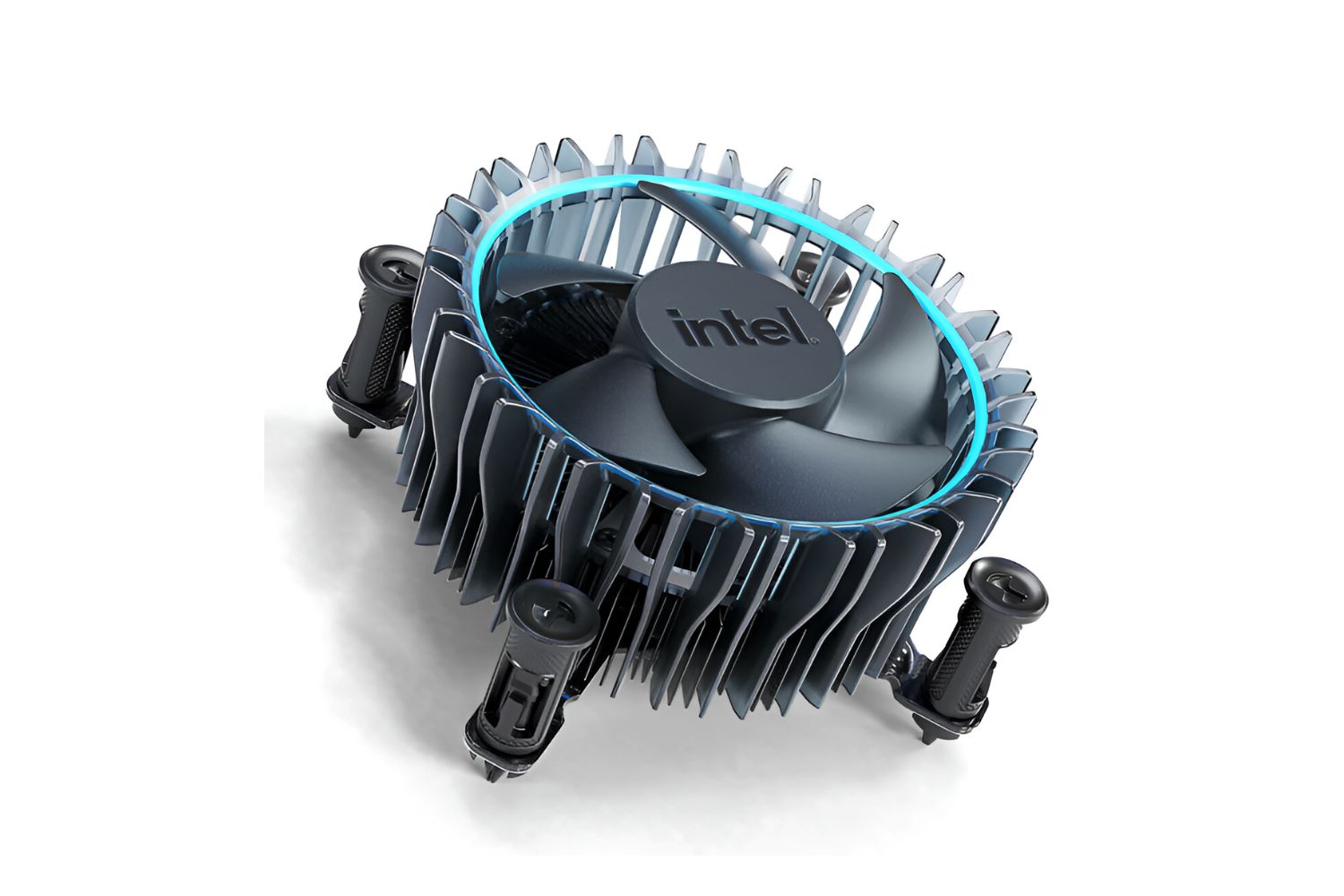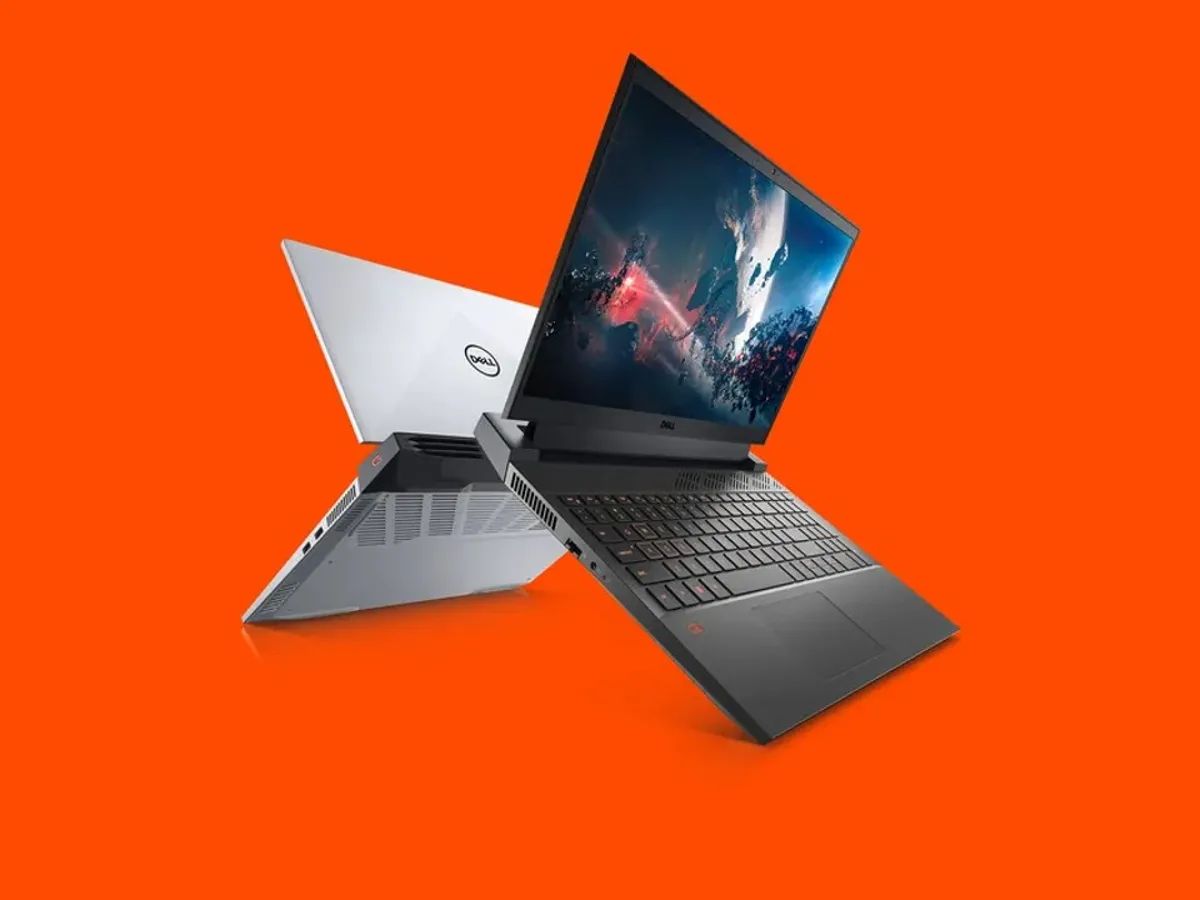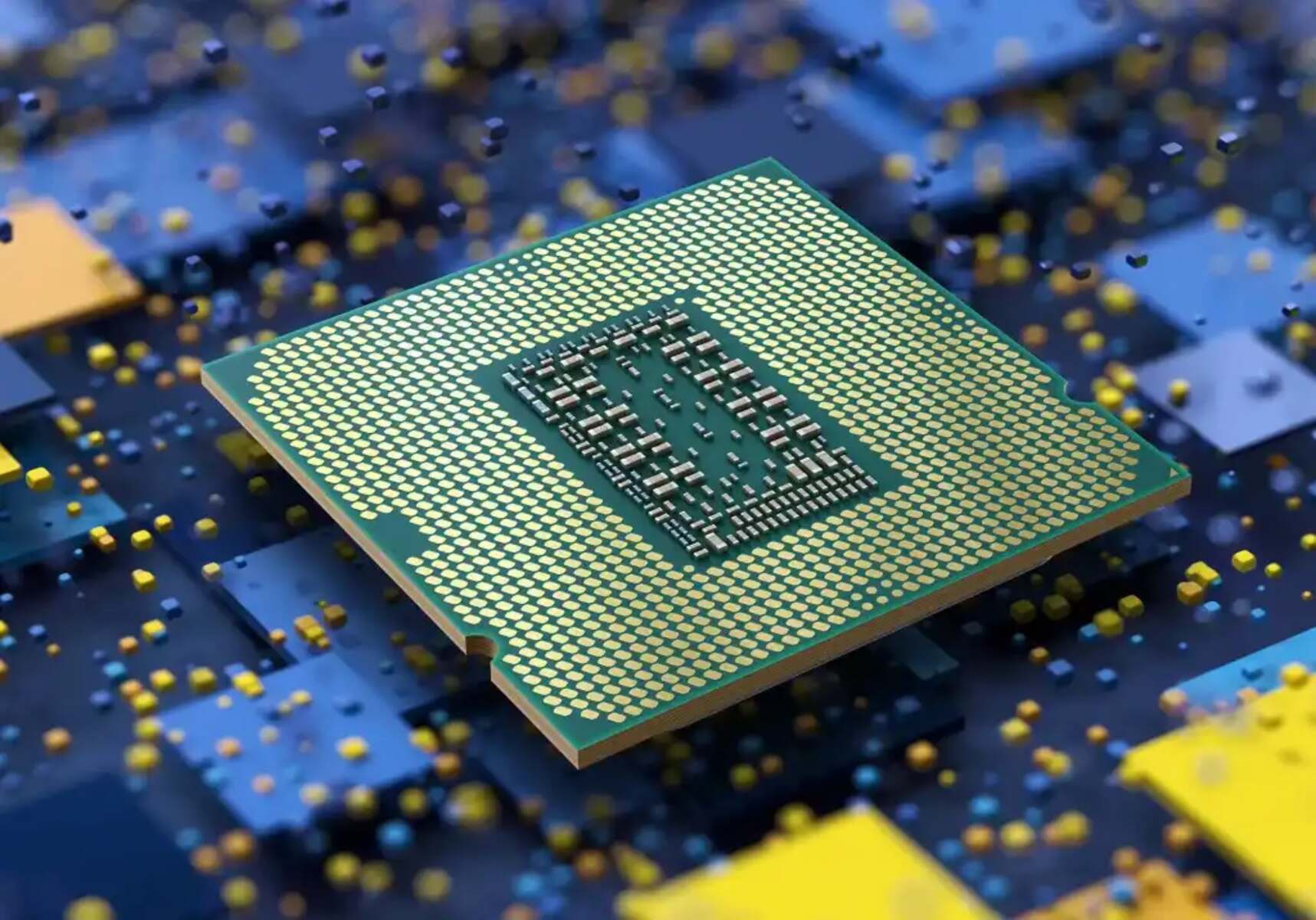Introduction
Welcome to our guide on CPU usage when gaming! If you’re a gaming enthusiast, you probably understand the importance of having a powerful and well-performing computer. While having a top-of-the-line graphics card and a sufficient amount of RAM is essential for a smooth gaming experience, your CPU (Central Processing Unit) also plays a crucial role.
The CPU, often referred to as the “brain” of your computer, handles a wide range of tasks, including processing instructions, running software, and executing calculations. When it comes to gaming, your CPU’s performance directly impacts how well your games run and how smoothly they perform.
In this article, we will explore the concept of CPU usage when gaming, its importance, the factors that affect it, and the ideal CPU usage that you should aim for. We will also share some tips for monitoring and managing CPU usage to optimize your gaming experience.
Whether you’re a casual gamer or a hardcore enthusiast, understanding CPU usage when gaming can help you make informed decisions when upgrading your system and ensure that your gaming sessions are optimized for the best performance possible. So, let’s dive in and learn more about CPU usage in gaming!
What is CPU Usage?
CPU usage refers to the percentage of a CPU’s processing capacity that is being utilized at a given time. It is a metric that indicates how much of the CPU’s resources are being allocated to perform tasks. In the context of gaming, CPU usage refers to the amount of processing power dedicated to running the game and associated tasks.
When you launch a game, your CPU becomes responsible for executing the game code and handling various tasks such as physics calculations, AI processing, and game logic. The CPU’s usage will fluctuate based on the complexity of the game and the number of processes it needs to handle.
The CPU usage is typically measured as a percentage, where 100% represents the maximum capacity of the CPU. If your CPU usage is consistently high during gameplay, it indicates that the CPU is working at or near its maximum capacity, which can lead to performance issues such as frame drops, stuttering, and overall sluggishness.
Monitoring CPU usage is crucial when gaming, as it helps you identify potential bottlenecks in your system. By understanding how your CPU is being utilized, you can make informed decisions about upgrading components or adjusting in-game settings to optimize performance.
CPU usage can be measured using various tools and software utilities. Operating systems often provide built-in task managers or system monitoring tools that display real-time CPU usage. Additionally, there are third-party applications that offer more advanced monitoring and analysis features, allowing you to delve deeper into CPU usage data.
Now that we have a basic understanding of CPU usage, let’s explore why it is essential to pay attention to CPU usage when gaming, and how it can impact your gaming experience.
Why is CPU Usage Important in Gaming?
CPU usage is a critical factor to consider when it comes to gaming performance. The CPU is responsible for executing the game code and handling various calculations and processes in real-time. Here are a few reasons why CPU usage is important in gaming:
1. Game Performance: The CPU plays a crucial role in determining how well a game performs. It is responsible for tasks such as game physics, AI calculations, and rendering effects. If the CPU is not powerful enough or is being heavily utilized, it can result in lower frame rates, stuttering, and overall performance issues.
2. System Bottlenecks: Gaming is a demanding task, and if the CPU is struggling to keep up with the game’s requirements, it can create a bottleneck in your system. This means that the CPU becomes the limiting factor in performance, even if you have a powerful graphics card or plenty of RAM.
3. Multi-Threaded Games: Many modern games are designed to take advantage of multiple CPU cores or threads. Games that are heavily multi-threaded can distribute the workload across different cores, allowing for better performance. Monitoring CPU usage can help you determine if a game is taking full advantage of your CPU’s capabilities.
4. Background Processes: While gaming, it’s common to have other applications running simultaneously in the background, such as antivirus scans, chat programs, or streaming software. Monitoring CPU usage can help you identify if any background processes are consuming a significant portion of your CPU’s resources, potentially impacting game performance.
5. System Stability: If your CPU usage is consistently high when gaming, it can put a strain on your system’s overall stability. This can lead to increased temperature, potential overheating, and even system crashes. Keeping an eye on CPU usage can help you maintain system stability and prevent any potential issues.
By paying attention to CPU usage when gaming, you can ensure that your system is operating optimally, and you can make informed decisions about upgrading your hardware or adjusting in-game settings to achieve the best possible gaming experience.
What Affects CPU Usage When Gaming?
Several factors can impact CPU usage when gaming. Understanding these factors can help you optimize your system and make informed decisions to improve your gaming experience. Here are some key factors that affect CPU usage:
1. Game Graphics and Settings: The complexity and quality of game graphics can have a significant impact on CPU usage. High-resolution textures, advanced lighting effects, and complex rendering techniques can increase the workload on the CPU. Additionally, adjusting in-game settings like draw distance, shadow quality, and particle effects can also affect CPU usage.
2. Game Physics and AI: Games with realistic physics engines and advanced AI systems require significant computational power. The CPU is responsible for handling these calculations in real-time, so games with complex physics and AI systems can put a heavy load on the CPU.
3. Number of Players: In multiplayer games, the number of players in a server or lobby can impact CPU usage. Each player’s actions and interactions with the game world need to be processed by the CPU. More players mean more calculations and increased CPU usage.
4. Background Processes: Other applications running in the background can consume CPU resources and impact gaming performance. Tasks like antivirus scans, software updates, or streaming software can utilize CPU power and increase CPU usage.
5. CPU and System Specifications: The performance of your CPU and overall system specifications directly affect CPU usage in gaming. A more powerful CPU with higher clock speeds and more cores can handle demanding tasks more efficiently, resulting in lower CPU usage. Additionally, having sufficient RAM and a fast storage drive can also contribute to smoother gaming performance.
6. Overclocking: Overclocking your CPU can increase its processing power, but it can also lead to higher CPU usage as the CPU works harder to perform tasks at the overclocked speeds. While overclocking can improve performance in some cases, it requires careful monitoring to ensure that the CPU doesn’t overheat or become unstable.
By understanding these factors, you can identify areas that could be impacting CPU usage when gaming. This information can help you fine-tune your system, adjust game settings, or even upgrade components to optimize CPU usage and enhance your overall gaming experience.
Ideal CPU Usage When Gaming
When it comes to ideal CPU usage when gaming, there isn’t a specific percentage that applies to all situations. CPU usage can vary depending on the game, system specifications, and background processes running. However, there are some general guidelines to consider:
1. Balanced Workload: Ideally, you want your CPU usage to be balanced, meaning it is not constantly maxed out at 100%. A CPU that constantly operates at its maximum capacity can cause performance issues and may indicate that the CPU is a bottleneck in your system.
2. Utilizing CPU Cores: If you have a multi-core CPU, you want the workload to be spread across all cores. This ensures that each core is utilized efficiently and helps improve overall performance. Monitoring individual core usage can help identify any imbalances.
3. Varies Depending on Game: Different games have different CPU usage requirements. Some games may be more CPU-intensive, while others rely more heavily on the GPU. It’s essential to consider the recommended system requirements for the specific game you are playing to get an idea of what to expect in terms of CPU usage.
4. Room for Background Processes: It is beneficial to have some CPU capacity available for background processes running alongside your game. These processes could be essential system tasks, voice chats, or streaming software. Ensuring there is enough CPU headroom allows for a smooth gaming experience without impacting other tasks.
5. Stable and Consistent: Ideally, CPU usage should remain stable during gameplay. Sudden spikes or fluctuations in CPU usage can lead to frame drops, stuttering, or other performance issues. Consistent and stable CPU usage indicates that the CPU is capable of handling the demands of the game effectively.
It’s crucial to note that the ideal CPU usage may vary from system to system and game to game. What may be considered ideal for one person may not be the same for another. It’s essential to monitor and assess your system’s performance, taking into account factors such as game requirements, hardware specifications, and any background processes. This way, you can find the optimal balance of CPU usage to ensure a smooth and enjoyable gaming experience.
Monitoring and Managing CPU Usage When Gaming
Monitoring and managing CPU usage when gaming is essential to ensure optimal performance and prevent issues such as overheating and system instability. Here are some tips on how to monitor and manage CPU usage effectively:
1. Monitor CPU Usage: Utilize system monitoring tools or third-party software to keep an eye on CPU usage while gaming. These tools provide real-time data on CPU usage, allowing you to identify any spikes, high usage, or potential bottlenecks. Task Manager in Windows or Activity Monitor on macOS are built-in tools that can provide valuable information.
2. Optimize In-Game Settings: Adjusting in-game settings can significantly impact CPU usage. Lowering graphics settings, reducing the draw distance, or disabling CPU-intensive effects can lessen the strain on the CPU. Experiment with different settings to find the right balance between visual quality and CPU performance.
3. Close Unnecessary Background Processes: Before gaming, ensure that unnecessary background processes are closed. Applications like web browsers, file syncing software, or media players can consume CPU resources even when running in the background. Closing these processes can free up CPU capacity for your game.
4. Update Drivers and Software: Outdated drivers or software can potentially cause increased CPU usage or compatibility issues. Regularly update your graphics card drivers, operating system, and gaming software to ensure optimal performance and compatibility, which can help manage CPU usage effectively.
5. Keep Your System Clean and Cool: Dust and debris can accumulate on CPU heatsinks and fans, leading to higher temperatures and increased CPU usage. Regularly clean your system and ensure that airflow is not obstructed. Keeping your CPU cool can help maintain optimal performance and reduce the risk of an overheating CPU.
6. Consider Hardware Upgrades: If you consistently experience high CPU usage and performance issues even after optimizing settings and managing background processes, it may be time to consider upgrading your CPU or other system components. Upgrading to a more powerful CPU with better performance capabilities can significantly improve gaming performance and reduce CPU usage.
By monitoring CPU usage while gaming and implementing effective management strategies, you can optimize system performance, prevent potential issues, and create a smoother gaming experience. Remember to tailor your monitoring and management approach to the specific requirements of your games and system configuration.
Tips to Reduce High CPU Usage When Gaming
Experiencing high CPU usage when gaming can lead to performance issues such as frame drops, stuttering, and overall sluggishness. To help reduce high CPU usage and optimize your gaming experience, here are some useful tips:
1. Close Unnecessary Background Programs: Before launching your game, close any unnecessary background programs running on your computer. Applications like web browsers, chat clients, or file syncing software can consume CPU resources even when idle. By closing these programs, you free up CPU capacity for your game.
2. Adjust In-Game Settings: Tweaking the in-game settings can have a significant impact on CPU usage. Lowering graphics settings, disabling unnecessary visual effects, or decreasing the render distance can reduce the workload on the CPU. Experiment with different settings to find the balance between visuals and performance that works best for you.
3. Limit FPS (Frames Per Second): Setting an FPS cap in your game can help reduce the CPU usage. High frame rates can strain the CPU as it tries to render and process each frame. Limiting the FPS can alleviate this burden and lead to smoother gameplay with lower CPU usage.
4. Optimize Power Settings: Adjusting your computer’s power settings to favor performance can help reduce CPU usage during gaming. Select the “High Performance” power plan in your operating system’s power settings to ensure that your CPU is running at optimal frequencies and not being throttled.
5. Update Drivers and Software: Outdated drivers and software can sometimes cause increased CPU usage or compatibility issues. Regularly update your graphics card drivers, operating system, and gaming software to the latest versions. This helps ensure optimal performance and can often include bug fixes and optimizations that reduce CPU usage.
6. Overclocking and Cooling: Overclocking your CPU can offer increased performance but may also lead to higher CPU usage and temperature. If you have overclocked your CPU, make sure it is stable and within safe temperature limits. Additionally, ensure proper cooling in your system by cleaning dust, ensuring proper airflow, and considering aftermarket cooling solutions if needed.
7. Upgrade Your Hardware: If you consistently experience high CPU usage and performance issues, it may be time to consider upgrading your hardware. Upgrading to a more powerful CPU with better performance capabilities can significantly reduce CPU usage and improve gaming performance. Consider checking the recommended system requirements for your games and compare them to your current hardware configuration.
8. Close Resource-Intensive Applications: Close any other resource-intensive applications that may be running concurrently with your game, such as video editing software or virtual machines. These applications can consume significant CPU resources and impact gaming performance. Closing them will free up more CPU capacity for your game.
By implementing these tips, you can effectively reduce high CPU usage when gaming, optimize performance, and enjoy a smoother gaming experience with improved frame rates and responsiveness.
Conclusion
CPU usage plays a vital role in gaming performance and overall system optimization. Understanding CPU usage when gaming enables you to identify potential bottlenecks, optimize system settings, and enhance your gaming experience. By monitoring CPU usage, adjusting in-game settings, and managing background processes, you can achieve optimal performance and prevent issues like overheating and system instability.
Remember that the ideal CPU usage can vary based on the game, system specifications, and background processes. Strive for a balanced workload, utilize CPU cores efficiently, and keep an eye on stability and consistency. Additionally, consider factors like game graphics, CPU specifications, and the number of players in multiplayer games when evaluating CPU usage.
Reducing high CPU usage when gaming requires a combination of strategies, including closing unnecessary background programs, adjusting in-game settings, optimizing power settings, and keeping drivers and software up to date. Overclocking and cooling considerations, along with potential hardware upgrades, can also be beneficial in reducing CPU usage and maximizing gaming performance.
Ultimately, the goal is to find the optimal balance between visual quality, smooth gameplay, and efficient CPU usage. By implementing the tips mentioned in this guide, you can ensure that your CPU is operating optimally, allowing you to enjoy a seamless and immersive gaming experience.
So, start monitoring your CPU usage, optimize your system, and get ready to take your gaming to the next level!







